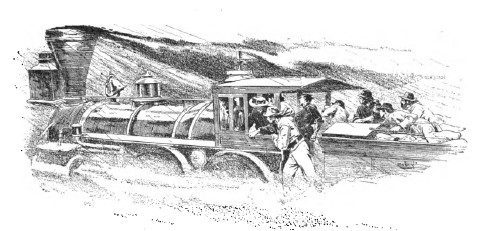Ironton Register 15 Dec. 1887 – Samuel Sparling was a member of Company G 4th Ohio Cavalry. He went early into the war with Capt. Edwin Rogers. We haven’t found many of the boys of this gallant regiment and were consequently delighted when we found that it was in that organization that our old friend, Sam Sparling, did his fighting for the Union.
“Well,” said he, when we asked him for a ‘Narrow Escape,’ “the one first that comes into my mind occurred down near Huntsville, Alabama during the Campaign of Rosecrans in 1863, I believe. Both incidents were of the bushwhacking kind. I was on courier duty, a service that was especially hazardous, and had to do with bushwhackers. Many of the couriers were killed on their little missions, carrying orders from our part of the army to the other.
“I remember one time a force of 300 of us started from Huntsville to Bridgeport on the cars. This was not exactly a courier service, but our detachment happened to be with the 300 when we ran into a rebel force of about the same number. The cars were just entering a big cut when the volley from the rebs struck us sorely. It was a very hot place for five minutes. Thirteen of our boys fell, but the rebs soon scampered.
“I speak of this because it was in the same cut where happened, the event which I started out to tell. After being at Bridgeport and on down to the front for sixty days, my detachment of couriers was ordered back to Huntsville on some special duty. I was Sergeant in command of twenty men.
We were given a locomotive and two cars, one for our horses and one for ourselves. The distance was twenty-seven miles, and the rebs had been bad of late, along that route. An officer said to me: ‘Watch closely – you will have trouble going back to Huntsville. Keep your eyes on that gap.’ Well, we started.
The horses in the car seemed to rise out of the ground, but they were there, and there to kill. They fired at the engine and the second car, thinking to kill the engineer and as many of us, whom they were supposed to be in the second car, as possible. The engineer, by scrooching flat, saved himself but the conductor was filled with bullets, and never knew what hit him. I heard the boys say that 57 balls went into his back. Nine horses were killed in the second car.

“As soon as I saw we were attacked, I jumped to the door of the car, where the bullets played around me in the most spirited manner. One ball struck the board just over my head, and about three inches from me. Another ball hit the side of the door where I stood, while another grazed my left hand right there, you see, and altogether, I felt the escape was pretty narrow.
The engineer gave the throttle a big pull and we flew through that gap like young lightning. And yet, I sometimes think that if he had stopped and let us have got a whack at them, fellows, we could have whipped them, for we had Spencer Carbines and two revolvers apiece, but I was glad to get out of there as it was.
“In the first ambush that I referred to when the 300 were attacked, I forgot to relate that Mathew L. Moore and Elizur C. Newton, both from this county, met with ‘narrow escapes’, for they were both on top of the car.
Elizur didn’t exactly escape, for a ball just grazed the top of his head, and I have always believed that right there and then began the trouble which resulted in Elizur’s mind being badly deranged. When he came from the roof of the car, his face was as white as a sheet, and he complained that the top of his head burned painfully.
“Some of these times I might think up a better ‘narrow escape,’ but I am in a locomotive, and we were in the last car – 21 of us. Both cars were closed. It was about ten miles to the gap, and as we approached we saw no signs of any rebs and really thought the coast was all clear, but just as we struck the entrance to the gap, a party of rebs, at least 200 of them, banged at the train.
“Goodbye.”

0 Comments